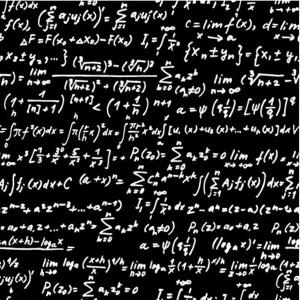I took a calculus class when I was 18 years old. It was hard. I remember studying what I was taught on Monday then being scandalized that something new was being taught on Tuesday before I was really sure I knew how to do Monday’s problems. I finally figured out how to work Monday’s problems on Friday, but that meant I didn’t catch any of Tuesday – Thursday’s lessons. Then came the Friday exam. I got 25% correct. Monday’s lesson. This was what the whole semester was like for me. I had to take Calculus again.
The second time through, I was able to keep up a little better (after all, I knew all the Monday lessons). But what I remember the most about that course, and what flashes before my eyes every time I hear the word “calculus” after 30 years … is what happened one evening while doing homework in a little cold dorm room at midnight.
The homework that night was one question. I was already 3 pages into solving that one question. It had to do with a huge cylinder of water. Some water was flowing in, but the cylinder had a leak that got bigger as more and more water leaked out of it. The question was about the volume of water left in the cylinder after a specific period of time.
My pages of work looked something like the illustration above. At the end was an answer to three decimal places. Anyone who has done this work knows you are only half done at this point. I turned back to the beginning and started going over my work to check all the steps and all the math.
As I was doing this, something magical happened. My brain stopped looking at little numbers and symbols and started to read the math. The comprehension had nothing to do with the squiggles on the page…and everything to do with it. My brain was not thinking in words. It was thinking in numbers and the concepts behind the formulae. I grokked calculus fully. *angelic choir sound*
The best analogy will be trying to remember being a child and sounding out each letter of the alphabet in order to read your first word. Can you remember that transition from a phonetic reading to sight reading?
I was deep deep into that cylinder and that flowing water when my roommate came in and broke the spell. I was never able to go back there again. I know that scientists and mathematicians do this every day. It is not special to them. It was to me, though. Very special. A whole world opened up to me that night. I got a glimpse of magic that came and went.
I think this happens to artists and musicians as well. I have found myself lost in that world when painting, when listening to Wagner and Beethoven, and when writing. There is a creative part of the brain that takes your consciousness and puts it in a timeless place where language only gets in the way of meaning.
Plato called this place the world of forms. I have been there.









